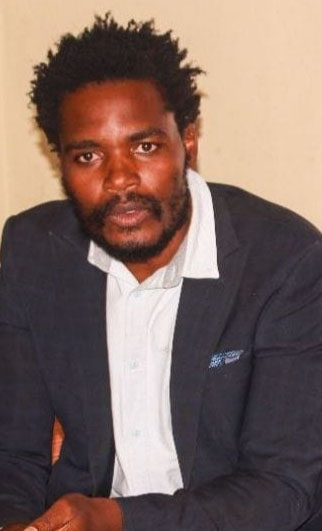Prof Blessed Nhlanganiso Ngwenya is the latest expert to join the renowned Optentia research unit of the North-West University (NWU).
Upon graduating from the University of the Witwatersrand with a BA with honours and an MA, he went on to study at the famed University of Oxford in England, where he earned a DPhil in socio-legal studies and a master's degree in legal research.
The passionate academic and researcher is the father of three children; daughter Bulelwa and sons Wandi and Lwandle, who still live in the United Kingdom.
He views academia as an unorthodox work arena and a permanent journey and describes it as “dedicating one’s life to in-depth research, scholarship, and community engagement”. Prof Ngwenya adds that academia is an on-going job and that your career is about expanding knowledge in a specific subject.
He explains that it is very difficult to separate academia from your personal life and that it can perhaps be viewed as a calling. “My research interests are in decoloniality -focusing on the communication science field, the method of un-disciplinarity, and the multi-disciplinary area of inclusion, capability, and optimal functioning,” he adds.
Prof Ngwenya says the best aspect of his work is inscribed within its purpose. “The key pillar of the job is research that explores the development of the capabilities of diverse individuals across age, race, gender, disability, etc., including groups and institutions.”
He says his proudest achievement to date is the publication of his book Media Power and Hegemony in South Africa: The Myth of Independence in 2021 by Routledge. “Writing can be a very lonely endeavour, but a fulfilling one,” he adds.
Prof Ngwenya’s motivation to succeed in academia comes from a variety of sources, one being the fact that the field of knowledge production is dynamic. “For me, this is motivation enough in itself. For instance, the Faculty of Humanities and our research unit hosted the first NWU conference on digital humanities in precarious times. This is instructive to the evolving nature and practice of research in academia where there is a call for trans- and multi-disciplinarity in knowledge production. Computational tools call for novel methods to traditional humanities studies such as linguistics, literature, music, history, philosophy, and others. These are disruptions for innovative approaches,” he explains.
He adds a further dimension by pointing out that in academia, you work toward an objective that transcends the individual. “There is so much interaction and collective efforts in conversations, seminars, workshops, community engagement, scholarship, and so forth. As the adage goes, ‘iron sharpens iron’ – that is the nature of academia where there is constant growth in various forms that include mentoring and being mentored.”
His vision for the near future is to contribute significantly to knowledge that enhances inclusion, capability and optimal functioning of groups, particularly those in the Fanonian zone of “non-being”.

Prof Blessed Nhlanganiso Ngwenya
